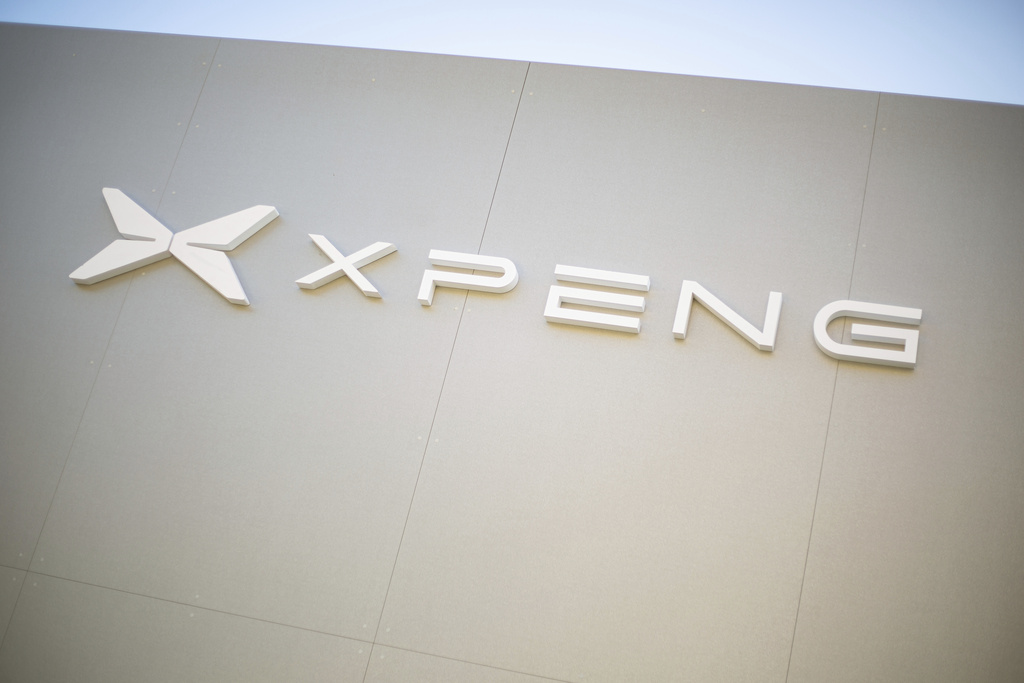
As a result, EVs and hybrids will be two of every three autos sold globally by 2030.
Automakers are announcing substantial increases to their EV portfolios for the long term, and EV mix will grow over the long term to at or near 100% of industry sales. This massive growth creates potential investment opportunities throughout the EV supply chain.

Below are the automakers we believe are poised to capitalize on the global rise of electric vehicles.

BMW Group (BMW), (BMWYY)
- BMW makes premium passenger vehicle brands BMW, Mini, and ultraluxury brand Rolls-Royce as well as BMW brand motorcycles. In 2020, BMW had 14 electrified models available to consumers, which accounted for 8% of sales volume.
- BMW's narrow Morningstar Economic Moat Rating comes from the intangible asset moat source derived from its strong brands and intellectual property. Since 2002, the firm has generated an average 7.6 percentage points in economic profit.
- BMW expects fully electric models to annually average 50% growth through 2025. In 2025, the company plans to have 25 electrified models, of which 12 will be EVs and 13 will be plug-in hybrids. By 2030, BMW targets at least 50% of its global sales volume to be EVs.
Ford (F)
- Ford has finally accelerated its EV plans as opposed to focusing more on hybrids under prior management. The Mustang Mach-E to us looks like a real competitor to a Tesla Model Y. The 2022 launch of the F-150 Lightning, an EV version of Ford's most profitable vehicle platform, shows Ford is serious about EVs.
- Ford does not have a moat. Vehicle manufacturing is capital-intensive, but barriers to entry are not as high as in the past. Facing strong competition, it is nearly impossible for one firm to gain a sustainable advantage.
- In May, Ford announced it will spend more than $30 billion on EVs through 2025 (includes about $7 billion spent for 2016-20), which we expect to be for both passenger vehicles and commercial vans. The premium Lincoln brand and the Transit commercial vehicle lines should both receive product in addition to the blue oval Ford brand.
General Motors (GM)
- In 2021, GM announced its ambition to only sell zero-emission vehicles globally by 2035.
- GM does not have a moat. Vehicle manufacturing is capital-intensive, but barriers to entry are not as high as in the past. Facing strong competition, it is nearly impossible for one firm to gain a sustainable advantage.
- GM plans to invest $35 billion on EV and autonomous vehicle development from 2020 to 2025. By the end of 2025, it intends to launch 30 EVs and have 1 million annual EV sales. It also has its proprietary Ultium battery technology that it is selling to other firms such as Honda.
Tesla (TSLA)
- Tesla is a pure-play and market-leading EV producer. The company is also vertically integrated, with its own battery technology that it plans to improve.
- Our narrow moat rating for Tesla comes from intangible assets and cost advantage. Tesla's brand commands a premium price for its luxury autos. The company also benefits from its technological advantage. Tesla's focus on cost reductions in its manufacturing process give the firm a cost advantage.
- Tesla outlined plans to integrate upstream and begin producing its own battery in 2022, growing to 3 TWh by 2030. Tesla also aspires to sell 20 million EVs each year, up from 500,000 in 2020, though we forecast 5 million by 2030. The company is building new factories around the world to expand its production capacity.
Volkswagen (VOW3), (VWAPY), (VWAGY)
- Volkswagen is one of the world's largest automotive manufacturers. Automotive brands include Volkswagen passenger cars, Audi, Bentley, Bugatti, Lamborghini, Porsche, SEAT, and Skoda. Commercial vehicle brands include MAN, Scania, and Volkswagen. Approximately 3% of 2020 worldwide sales volumes were battery EVs.
- Volkswagen does not have an economic moat. “Moatiness” from premium, exotic, and ultraluxury brands like Audi, Porsche, Bentley, Lamborghini, and Bugatti, is offset by mass-market Volkswagen, Skoda, and SEAT brands, plus the even more capital-intensive commercial truck business.
- During the next five years, Volkswagen is spending EUR 46 billion to electrify its product portfolio. In 2025, the company expects battery EVs to be 20% of total volume, growing to 55%-60% by the early 2030s.
©2021 Morningstar. All rights reserved. The information, data, analyses and opinions presented herein do not constitute investment advice; are provided as of the date written, solely for informational purposes; and subject to change at any time without notice. This content is not an offer to buy or sell any particular security and is not warranted to be correct, complete or accurate. Past performance is not a guarantee of future results. The Morningstar name and logo are registered marks of Morningstar, Inc. This article includes proprietary materials of Morningstar; reproduction, transcription or other use, by any means, in whole or in part, without prior, written consent of Morningstar is prohibited. This article is intended for general circulation, and does not take into account the specific investment objectives, financial situation or particular needs of any particular person. Investors should consult a financial adviser regarding the suitability of any investment product, taking into account their specific investment objectives, financial situation or particular needs, before making any investment decisions. Morningstar Investment Management Asia Limited is licensed and regulated by the Hong Kong Securities and Futures Commission to provide investment research and investment advisory services to professional investors only. Morningstar Investment Adviser Singapore Pte. Limited is licensed by the Monetary Authority of Singapore to provide financial advisory services in Singapore. Either Morningstar Investment Management Asia Limited or Morningstar Investment Adviser Singapore Pte. Limited will be the entity responsible for the creation and distribution of the research services described in this article.













.png)










